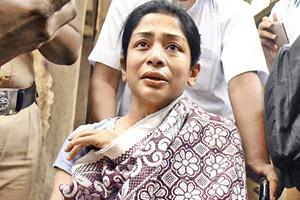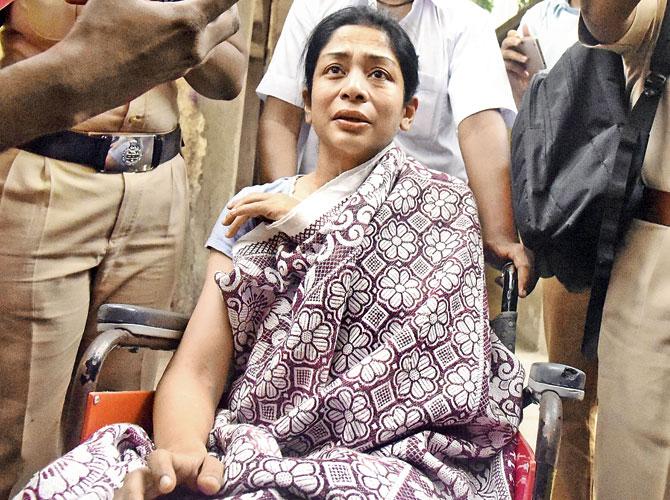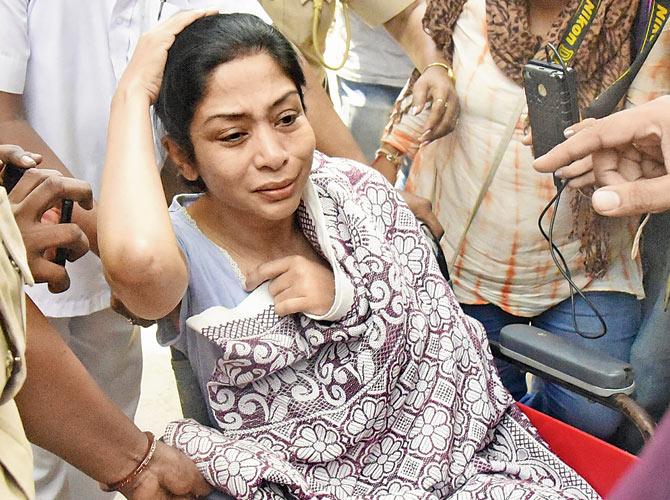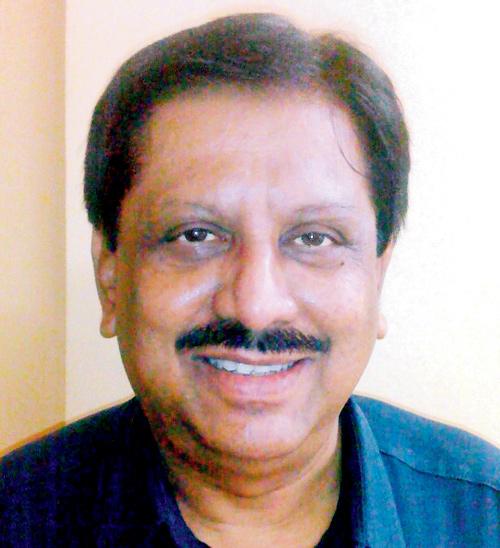JJ doctor says Mukerjea did not consume the prescribed antidepressant Amitriptyline, and instead took anxiety medicine Benzodiazepine, which she was never prescribed


Indrani's urine was found to contain 6,468 ng/ml of Benzodiazepine, which is 32 times over the cut-off level
ADVERTISEMENT
The drug that Indrani Mukerjea overdosed on had not been prescribed to her in Byculla jail. While it is true that Indrani was prescribed an antidepressant (Amitriptyline) in prison, she overdosed on an entirely different class of drug — Benzodiazepine, a sedative and anti-anxiety drug. This was confirmed by Dr Wiqar Shaikh, who treated her overdose at JJ hospital and has been tending to her medical needs in prison since August 2015.
Speaking exclusively to mid-day, Dr Wiqar Shaikh, Professor of Medicine and Head of Medical Unit V at Grant Medical College and Sir JJ Group of hospitals, said, "It has been emphasised that Indrani had consumed an antidepressant, as stated in some sections of the media; this is incorrect. Indrani consumed Benzodiazepine, which is not from the family of antidepressant medicines like Amitryptline, prescribed to her by in Byculla jail a visiting psychiatrist from JJ hospital, since October 2015. This means that a non-prescribed drug was ingested by her."

Since her discharge, Indrani has appeared for court hearing via video conferencing
Dr Shaikh added, "The antidote for Benzodiazepine is a drug called Flumazenil. We did not reach the stage of giving her Flumazenil, as she was responding well to the initial line of treatment on the night of April 6, when she was admitted to the Critical Care Unit (CCU) of JJ hospital. We gave her forced alkaline diuresis and three days of stomach wash (gastric lavage).
View gallery: Indrani Mukerjea Drug Overdose: Latest twists in the Sheena Bora murder case
"Within 24 hours, Indrani responded well to the treatment and regained her senses. Our diagnosis of drug overdose and treatment for the same resulted in her getting up from the bed and walking out of the CCU on her own feet. This itself summarises that our line of treatment is vindicated."

Dr Wiqar Shaikh
mid-day had yesterday reported that as per tests done at Hinduja hospital, Indrani's urine contained 6,468 ng/ml of Benzodiazepine, which is 32 times over the toxic cut-off level (200 ng/ml). In addition, her urine also had traces of other narcotics and psychotropic drugs, such as cocaine and opiates. "We were not surprised by the Hinduja report, although the level for Benzodiazepine in her urine was alarmingly high, with traces of other narcotics, which were below the detectable levels. No other line of treatment was given to Indrani, till we diagnosed for aspiration pneumonia," said Dr Shaikh.
When asked why JJ had sent urine samples to Hinduja Hospital, apart from the State Forensic Science Labortaory (FSL), Dr Shaikh clarified: "Hinduja is a nationally accredited laboratory and we wanted to confirm our diagnosis. It is a routine practice to get specialised tests done at accredited state-of-the-art laboratories to confirm the diagnosis."
Why not blood samples?
This paper had also reported that the State FSL's findings were in complete contrast to Hinduja's report, as the state scientists found no trace of any drug in Indrani's urine.
The FSL scientists told mid-day that they would have had greater chances of finding traces of Benzodiazepine if the treating doctors had sent blood samples as well. "Excretion of any drug from urine is time-oriented, and the concentration of drug in blood remains for a longer time than in urine," the scientist said. However, Dr Shaikh clarified: "Benzodiazepine remains in the blood for only 24 hours, and in the salvia for 60 hours. But it remains in the urine for 96 hours and, therefore, the chances of detecting the drug was much higher in urine as compared to blood. This is corroborated even in medical books across the world."
Interestingly, JJ hospital never got the urine toxic screen report from the FSL. But scientists from the state lab insist that they have both the gastric lavage and the urine reports to the Nagpada police to hand over to JJ.
FSL is curious
Dr Shaikh had seen this exact scenario play out in 2015 as well, when Indrani had overdosed on Benzodiazepine for the first time in prison. "On October 2, 2015, I was summoned to Byculla prison, as Indrani was found to be unconscious. Benzodiazepine overdose was confirmed by the urine report from Hinduja laboratory. At the time, the reported level was 2088 ng/ml, which is 10 times over the cut-off. This time, it was 32 times more," said Shaikh, an honorary physician to Byculla jail. At that time too, the FSL's tests were negative for drugs.
This time, a team of scientists from FSL's clinical toxicology division intend to visit the Hinduja laboratory to understand the methodology used for screening Indrani's urine sample. "We are surprised that for the second time, the reports from FSL have come negative. If such a high level of Benzodiazepine was found in a private hospital laboratory, we should have at least found traces of the same," said one of the officials.
 Subscribe today by clicking the link and stay updated with the latest news!" Click here!
Subscribe today by clicking the link and stay updated with the latest news!" Click here!






